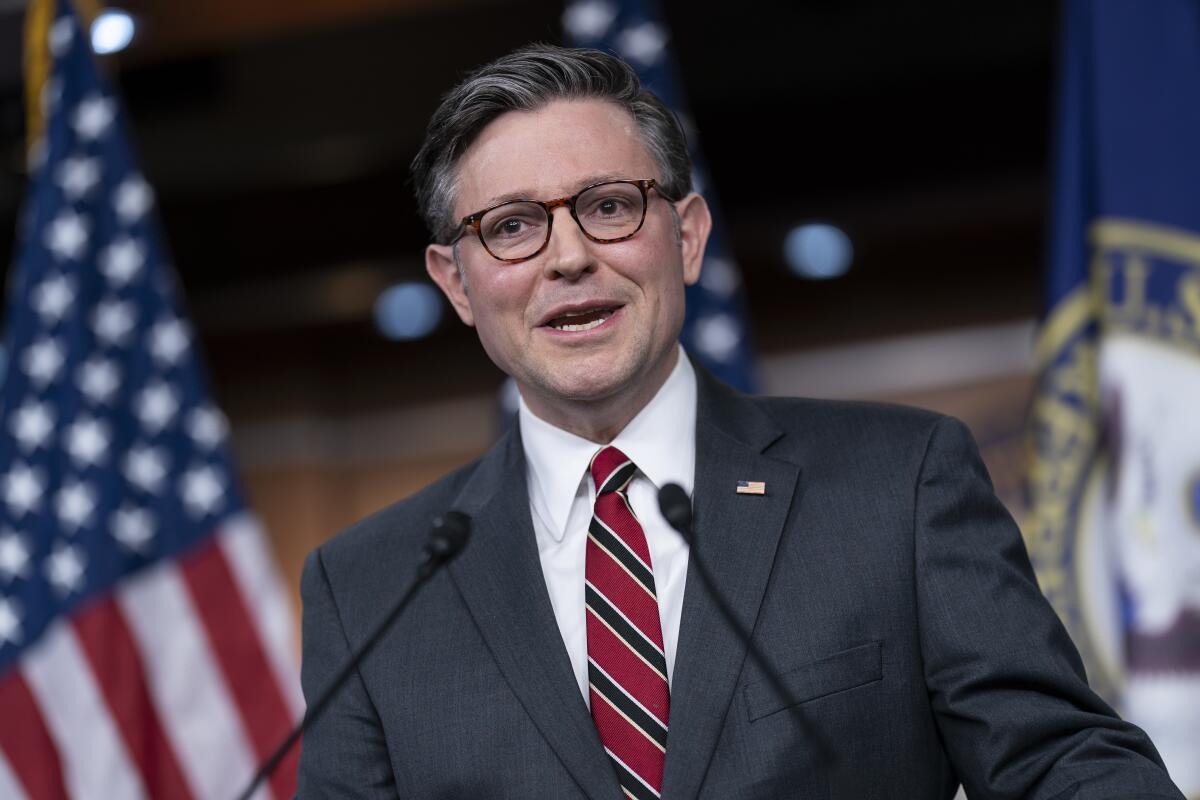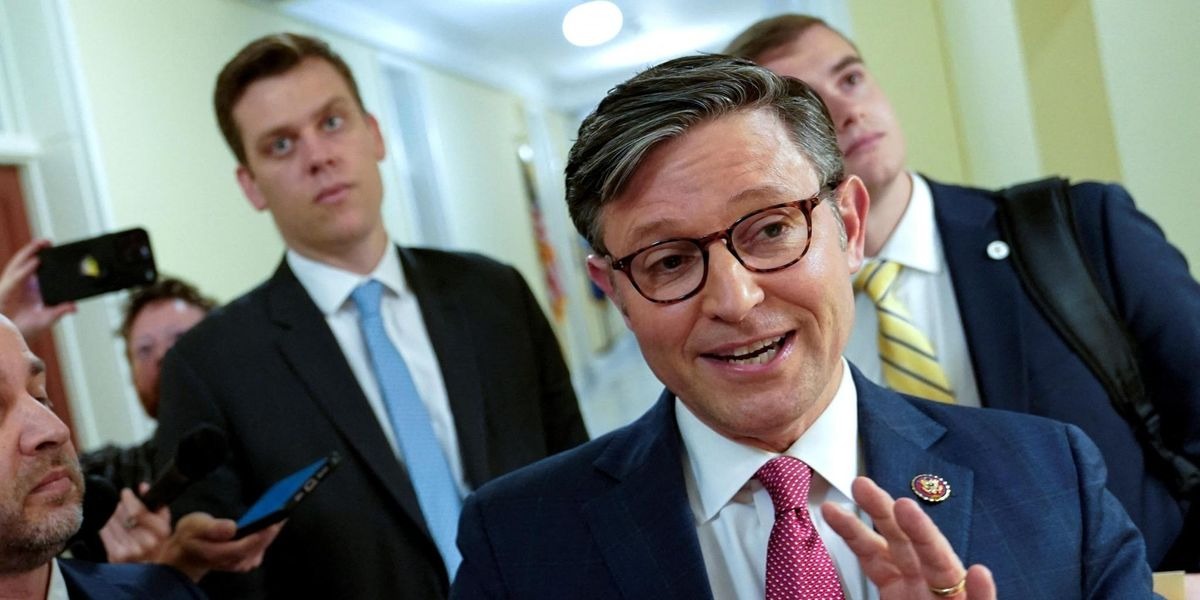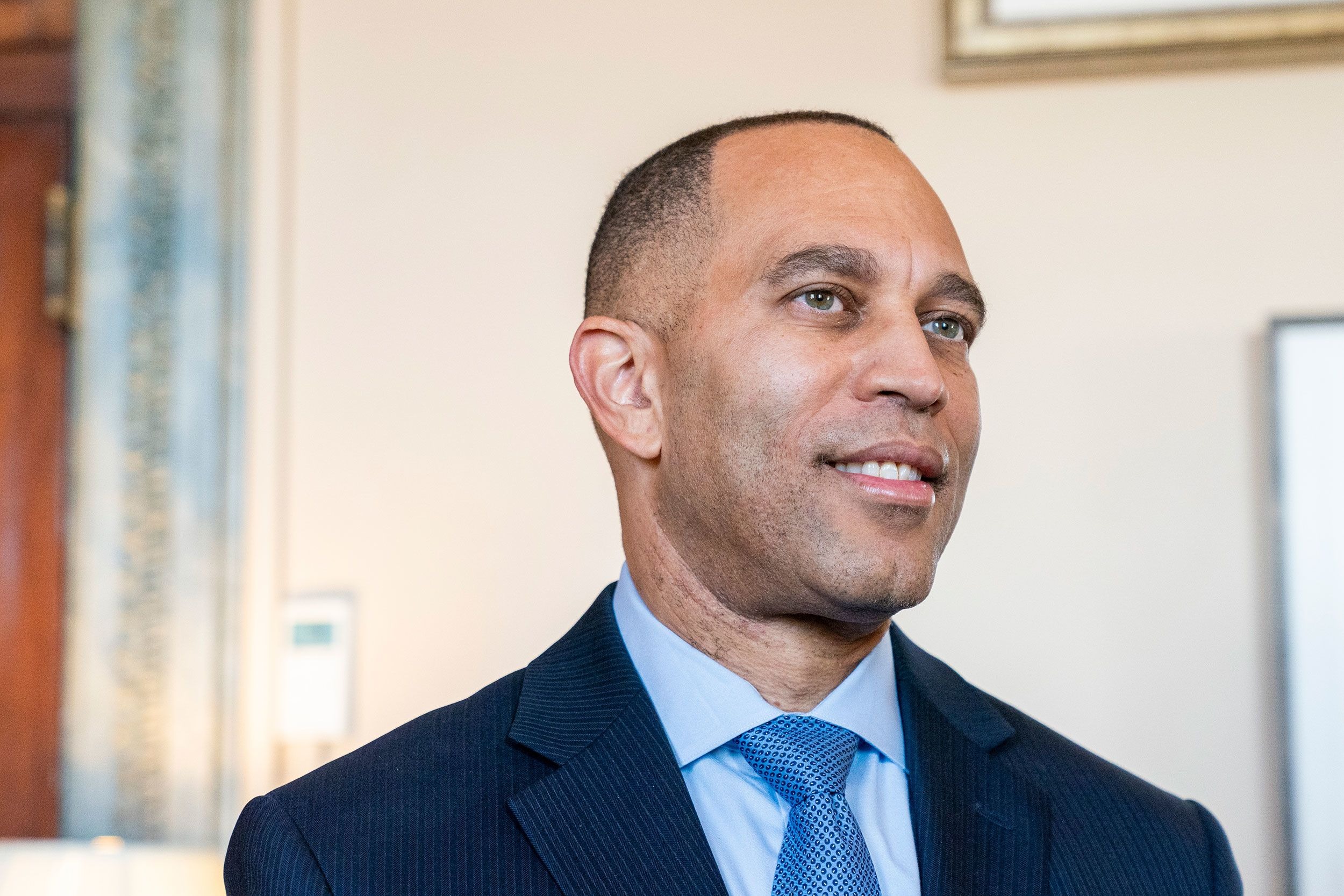House Minority Leader Hakeem Jeffries (D-N.Y.) stated on Friday that the White House is not guiding Democratic leaders on whether to support Speaker Mike Johnson (R-La.) if a conservative-led coup attempt emerges.
Some Democrats have already expressed their willingness to help Johnson maintain his position if his hardline critics attempt to oust him due to his bipartisan approach to deal-making. Jeffries acknowledged this possibility but did not endorse it.
When asked if the White House was leaving the decision entirely up to House Democrats, Jeffries confirmed, “That’s correct.” He also referenced the situation in October last year, when every voting Democrat supported the ouster of former Speaker Kevin McCarthy (R-Calif.).

Speaker Mike Johnson (Credits: CNN)
Democrats have taken a different approach with Johnson, offering to vote in his favor if a removal resolution is brought to the floor, provided he advances a foreign aid package, including funding for Ukraine, Israel, Taiwan, and humanitarian aid in Gaza.
This package has been stalled in the House for months. Johnson pushed forward with the foreign aid legislation despite conservative criticism, and it advanced through the House on Friday, expected to receive final passage on Saturday with broad bipartisan support.
It is uncertain if Johnson’s decision to defy his conservative critics will lead to an attempt to remove him as Speaker. Rep. Marjorie Taylor Greene (R-Ga.) has introduced a motion to vacate the resolution, supported by two additional Republicans, but has not indicated when or if she will force a vote.

Speaker Mike Johnson (Credits: Responsible Statecraft)
Former President Trump’s recent endorsement of Johnson’s performance as Speaker and the lack of a clear successor has complicated the situation. While some conservatives oppose removing Johnson due to political considerations, there is still a possibility that Greene or another hardliner might push a motion to vacate the resolution to the floor.
Jeffries has predicted that enough Democrats would be willing to support Johnson to prevent his removal, characterizing this as an observation rather than a declaration. He emphasized that any final decisions would be made after consulting with the House Democratic Caucus, but prioritized passing the national security bills first.























